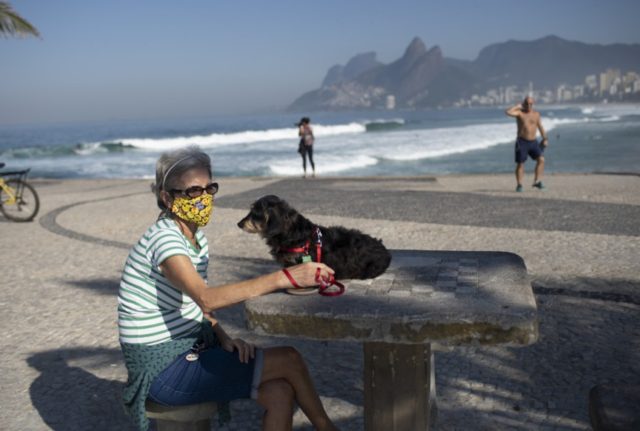Rio de Janeiro, one of the Brazilian cities worst hit by the new coronavirus, is slowly starting to reopen
Experts watch as Rio de Janeiro economy starts to reopenBy DIANE JEANTETAssociated PressThe Associated PressRIO DE JANEIRO
RIO DE JANEIRO (AP) — Rio de Janeiro, one of the cities worst hit by COVID-19 in Brazil, slowly started to reopen on Tuesday, more than two months after non-essential businesses were forced to shut down in order to limit the spread of the new coronavirus.
As of June 1, Rio had more than 30,000 confirmed cases and 3,671 deaths. In May, the city’s hospitals and intensive care units filled up, and patients infected by the virus were placed on a growing waiting list.
Some people ventured onto the beach on Tuesday even though they officially remained closed, while surfers and swimmers were allowed to get into the sea for the first time in weeks.
Sports activities in training centers resumed behind closed doors.
In the first of the plan’s six phases, most street shops will remain closed, with a few exceptions, such as car and furniture stores. Restaurants and bars also remain shut to the public, and are only allowed to open for take-away and delivery.
City officials said Monday that they will monitor the situation and, if necessary, backtrack on some measures. The plan was approved unanimously by the scientific board, they said.
Many health experts have welcomed the cautious, step-by-step approach adopted by Mayor Marcelo Crivella, but some fear the opening is happening too soon.
Official data show that on June 1, the city registered 118 new deaths from COVID-19 and 1,142 confirmed new cases.
Fiocruz, Brazil’s leading, state-run health research institute, warned last week that the curve of new infections was still growing in the state of Rio de Janeiro, and that loosening containment measures in one municipality could threaten neighboring cities.
“The plan is very good,” said Celso Ramos Filho, a professor in epidemiology at the Federal University of Rio de Janeiro who has been advising city officials on the pandemic response. “But I think we could have waited a little longer, at least one more week.”
Ramos said hospitalizations and deaths were going down in Rio, an encouraging sign, but waiting another week would have allowed experts to see whether the downward trend continued.

COMMENTS
Please let us know if you're having issues with commenting.